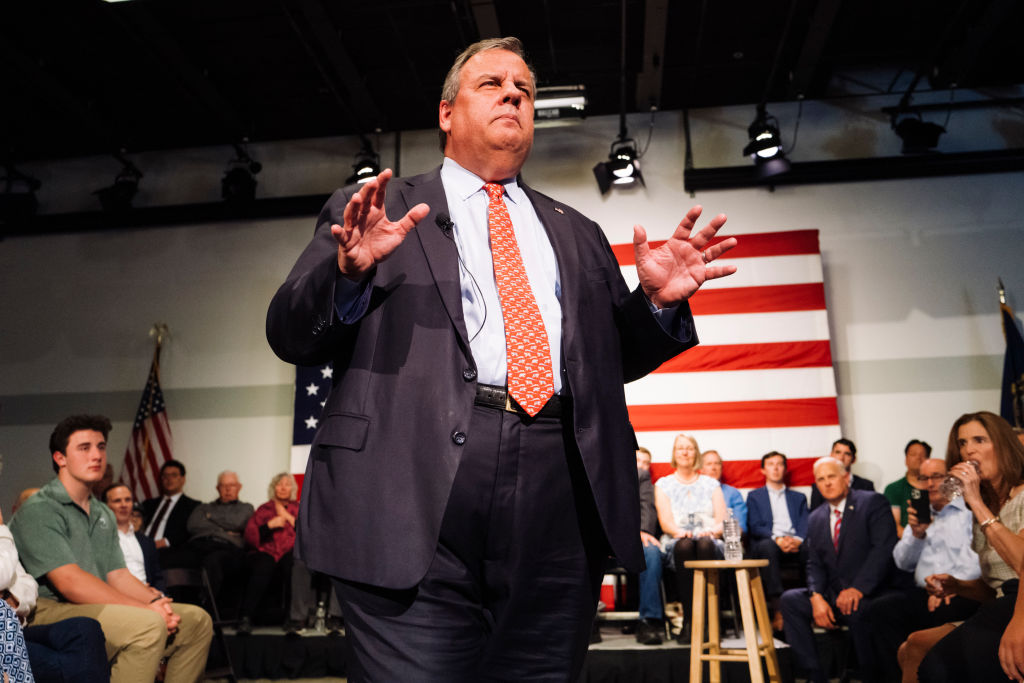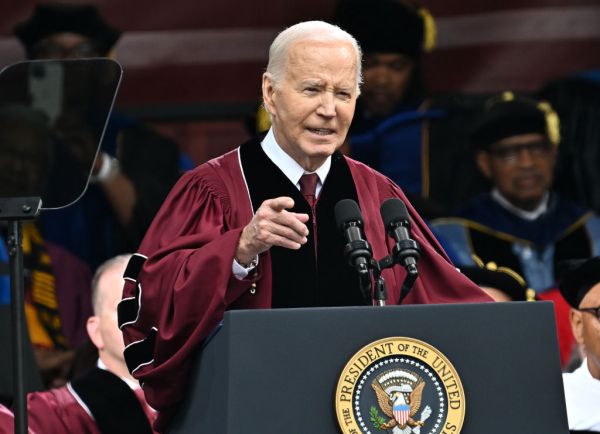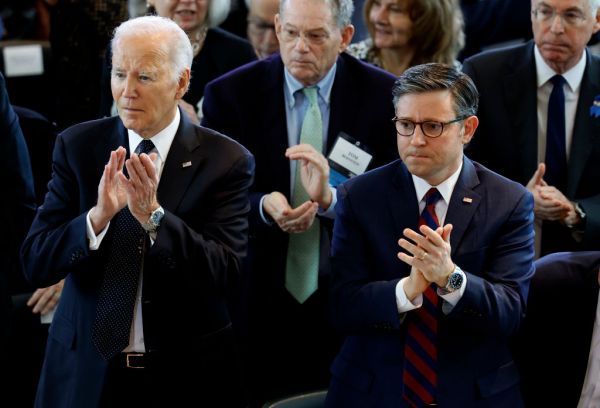Hey,
I’ve gone pretty heavy on the philosophical stuff of late. Going by some of the feedback in the comment section and elsewhere, opinions vary on my offerings. That’s fine. Though I do marvel at the way some people clearly hate-read me. I just don’t get the impulse. But that’s a subject for another day.
Anyway, I feel like a whole bunch of smaller stuff has fallen by the wayside, like sawdust and chips on the wood shop floor. I’m going to try to go a bit more bloggy here.
Enter Christie
I watched a good chunk of Chris Christie’s announcement yesterday, before Fox cut away. I have complicated views on Christie. Dan McLaughlin observes that, “Christie’s problem is simple: among Republicans, the more you loathe Trump, the more you are bitter at Christie. The voters he needs the most are the ones that have the deepest grudges against him.” I am not sure that Dan is right about large numbers of voters, but he’s onto something when it comes to me. I am still peeved at Christie for his endorsement of Trump and his early defenses of—and work with—the administration. He was an abettor of Trumpism and I think there was very little that was high-minded about it.
At the same time, so what? I don’t mean that dismissively, I’m asking it earnestly. How should that factor into my thinking? From the dawn of the Trump age, I’ve argued that the GOP has been full of “closet normals,” or people who know that Trump is unfit for the job but refuse to say so publicly or do anything about it. Well, that’s not Christie anymore. Most of the candidates are running as closet normals, willing to put a toe or maybe a whole foot outside the door. Christie is running fully out of the closet.
Think of it this way: Imagine if Christie were willing to let me vent my frustrations at him and I did so, reading him the riot act. And he responded, “Okay, what do you think I should do about it?” I might say something like, “tell the truth about the guy” or “go after him full-tilt.” Well, he’s doing that. I don’t know if it’s mostly penance or ambition—I have to assume it’s both—but he’s the one GOP candidate willing to deliver the full indictment.
I don’t know that running for president is the best way to do that, but it’s not obvious that it isn’t. He’ll get a lot more attention this way. And that’s not all bad. The real test will be whether he moves the Overton Window for the other candidates to be harsher or whether they respond by defending Trump more as a way to toady up to voters who don’t want to hear it. I think some will go one way and others will go the other way, but on net, I think it’s at least possible that he normalizes criticism of Trump in the primaries.
I should also say, he’s really good at it. You can tell he knows how to talk to a jury. Whether talking to voters like they’re jury members is effective for getting votes is debatable. But, man, his indictment of the grifting nature of the Trumps was great.
Go Big With Christie
One last thing. In his announcement last night, Christie did a very long riff on “Big versus Small.” Our politics today focus on small things, small ideas, small grievances, etc. “All throughout our history, there have been moments where we’ve had to choose between big and small,” he said. “I will tell you, the reason I’m here tonight is because this is one of those moments.”
Philosophically, I have problems with some of it. I didn’t need a paean to Woodrow Wilson and I’m always skeptical of politicians who make themselves the indispensable man of world-historic inflection points. But it was well delivered. At first, I thought it was a risk for Christie to constantly use the word “big” because he’s a big guy. Then I thought he might be baiting Trump into making Christie’s heft an issue. Being the victim of unfair personal attacks has political value.
Then I thought this could be a brilliant way to be self-deprecating while getting the bigger message out. He could have said something like, “I’m asking you to go big on America. Bet big on America. Bet big on the future. And, look, I’m the leader to do it. Sometimes it takes a big guy to do big things.” People would get the joke and the bumper stickers write themselves: “Go Big. Go Christie.”
The Washington Game
I know the debt ceiling fight is fading from memory—except for the House Freedom Caucus. But I do want to circle back to something that vexes me.
Rep. Nancy Mace went on a one-woman media blitz boasting that she wasn’t going to vote for the debt ceiling hike. I disagreed with the position, but I also know that some Republicans—and Democrats—voted against it because they knew it would pass. Tim Scott voted against it, because it was a free vote, the same way Obama did a decade ago.
But Mace’s position was different. She tweeted: “Washington is broken. Republicans got outsmarted by a President who can’t find his pants. I’m voting NO on the debt ceiling debacle because playing the DC game isn’t worth selling out our kids and grandkids.”
Now, I take a backseat to no one—save perhaps Brian Riedl—in opposition to debt and deficit spending. I get all those arguments and agree with them. Obviously, I think going into default would be a calamitously stupid way to prove how principled you are. But, again, most of the politicians—Republican and Democrat alike—who voted against the deal weren’t actually voting for default. They were free riders on other politicians, mostly from safer seats, who did the right thing. You can even defend those no votes as a way to message the very real fiscal problems we face. If everybody voted “Yes” it would send the signal that no one in Washington cares about these issues.
My problem with Mace is this “DC game” business. You see, Mace voted for the rules package that made the debt vote possible. Procedurally, that was the more important vote. And that’s the DC game to a T. She gets to go around preening and virtue signaling—even on Steve Bannon’s garbage show—about how principled and righteous she was in voting against a bill that “sells out” our kids and grandkids while making passage possible.
Bragging about being a rebel in public while being a responsible conformist in private is precisely the sort of “I voted for it before I voted against” DC gamesmanship that makes people think all of this stuff is, well, just a game.
If Only Joe Biden Were President
Right after Biden was inaugurated, I offered some advice to the new president: Be like Ike.
The point was that Eisenhower brilliantly stayed above the fray of day-to-day politics, husbanding his political capital. He came across as a charming, at times befuddled, grandfather of the nation and gave his enemies very little to sink their teeth into.
Don’t take my word for it. Here’s Paul Johnson in Modern Times (one of the greatest books I’ve ever read, by the way):
Eisenhower was the most successful of America’s twentieth-century presidents, and the decade when he ruled (1953–61) the most prosperous in American, and indeed world, history. His presidency was surrounded by mythology, much of which he deliberately contrived himself. He sought to give the impression that he was a mere constitutional monarch, who delegated decisions to his colleagues and indeed to Congress, and who was anxious to spend the maximum amount of time playing golf. His stratagem worked. His right-wing rival for Republican leadership, Senator Robert Taft, sneered, ‘I really think he should have been a golf pro.’ His first biographer claimed that the ‘unanimous consensus’ of ‘journalists and academics, pundits and prophets, the national community of intellectuals and critics’ had been that Eisenhower’s conduct of the presidency had been ‘unskilful and his definition of it inaccurate … [he] elected to leave his nation to fly on automatic pilot.’ He was seen as well-meaning, intellectually limited, ignorant, inarticulate, often weak and always lazy.
The reality was quite different. ‘Complex and devious’, was the summing-up of his Vice-President, Richard Nixon (no mean judge of such things); ‘he always applied two, three or four lines of reasoning to a single problem and he usually preferred the indirect approach’.In the late 1970s, the opening up of the secret files kept by his personal secretary, Ann Whitman, phone logs, diaries and other personal documents, revealed that Eisenhower worked very much harder than anyone, including close colleagues, supposed. A typical day started at 7.30, by which time he had read the New York Times, Herald Tribune and Christian Science Monitor, and finished close to midnight (he often worked afterwards). Many of his appointments (especially those dealing with party or defence and foreign policy) were deliberately left out of lists given to the press by Haggerty. Long and vital meetings with the State and Defence secretaries, the head of the CIA and other figures, took place unrecorded and in secret, before the formal sessions of the National Security Council. The running of defence and foreign policy, far from being bureaucratic and inflexible, as his critics supposed, in fact took place in accordance with highly efficient staff principles, contrasting strongly with the romantic anarchy of the Kennedy regime which followed. Eisenhower himself was in charge throughout.
Eisenhower’s public persona was maddening to his political opponents, forcing many of them to go overboard just to get attention. Yeah, it helped a lot that he successfully invaded Europe and was a victorious general beloved by a grateful nation. Pro-tip for the politicians: It’s helpful when you do that kind of thing. But Eisenhower governed like a grown up at a time of profound international tension. He didn’t hector the country about the need to “go big,” in part because after the back-to-back bigness of the New Deal and World War II, Americans had had enough of going big.
(All of you progressives, nationalists, and integralists take note: The era so many of you pine for wasn’t an era of heroic politics and bold initiatives, it was an era of normalcy and adult supervision. Yeah, Eisenhower built the interstate highways, but he didn’t do it on some mytho-poetic theory about a salvific state. He did it because it was a reasonable public investment.)
Now—surprise!—Biden didn’t take my advice. He let himself get spun-up by a bunch of flatterers who convinced him he could and should be a new FDR or at least “go bigger than Obama.” I cannot begin to imagine the RPMs and torque involved in Ike’s spinning in his grave over the disastrous pull out from Afghanistan.
But, it turns out that simply by virtue of his age, Biden has similar advantages to Ike. I thought Biden should follow an Ike-like strategy of public aloofness. Biden has, to some extent, fallen into that out of necessity. His aides hide him from the press because his occasional befuddlement isn’t an act. Whereas Ike deliberately sounded vague and equivocal, Biden often tries to sound bold and declarative. But then his staff will often walk back or clean up his remarks. The result is similar. You can’t be sure what Biden says is actually the position of his administration.
Similarly, by seeming like an affable, well-intentioned, old man his political opponents are constantly flirting with coming across like cranks and extremists, an impression the White House is desperate to encourage. Any disagreement from the right—at least until the debt ceiling deal—is routinely characterized as MAGA extremism, racism, etc.
Dave Weigel has a good piece on the problems this creates for the Republicans. As critical as the GOP is about Biden, he is a hard figure to demonize in a way that finds traction with voters. He’s unpopular—and eminently beatable—but simply hammering on his age is ideologically unsatisfying. “We are running against Kamala Harris,” Nikki Haley told Fox and Friends on Monday, Weigel notes. “Make no bones about it. The New York Times knows it. Every liberal knows it.” Vivek Ramaswamay says Biden is merely a prop of the real enemy. “I think the managerial class views him as right now the most convenient tool they have in their arsenal to actually advance their agenda.”
Maybe so. But in an era where politics is reduced to contests of personalities, this is thin gruel.







